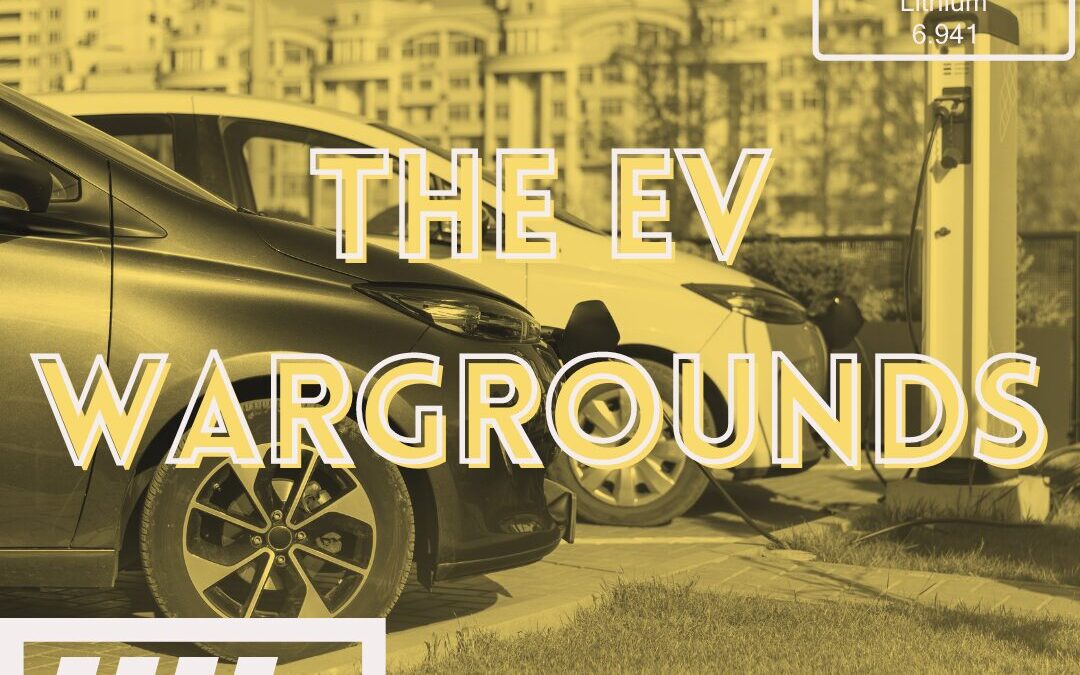Electric vehicles (EVs) are at the forefront of the automotive industry’s transformation, driven by a global shift toward sustainable transportation. Major players like Tesla, BYD, and General Motors are pioneering this change, but as the market grows, the battle for finite battery creating resources intensifies, posing both challenges and opportunities for EV makers. Who is winning in this wargoround for cobalt, nickel, lithium, and graphite?
The Race for Resources
Electric vehicles rely on advanced lithium-ion batteries, which require critical materials such as lithium, cobalt, nickel, and graphite. The demand for these materials is soaring as EV production accelerates due to increasing consumer interest and supportive legislation aimed at reducing pollution and combating climate change.
- Tesla, a leader known for its high-speed electric vehicles, produced 1,811,088 EVs in 2023 but saw its market share drop to 19.0% in Q1 2024 from 23.6% the previous year.
- BYD outpaced competitors with a production of 3,014,692 EVs in 2023, claiming a 19.4% market share in early 2024.
- General Motors and Volkswagen are also significant contributors, with GM planning a complete phase-out of gas and diesel vehicles by 2035.
The Environmental and Ethical Quandary
The extraction and processing of EV battery materials pose considerable environmental and ethical challenges. Mining practices, especially for cobalt and lithium, raise concerns due to their impact on local ecosystems and communities.
- The geopolitical concentration of these materials adds complexity to the supply chain, with major reserves located in politically sensitive regions (like China, Russia, and parts of Africa).
- Sustainable mining practices and recycling are becoming crucial to mitigate environmental impacts and ensure a stable material supply.


Technological Innovations Shaping the Future
Advancements in battery technology are critical to addressing the needs of the EV industry. While lithium-ion remains dominant, innovations such as solid-state batteries could redefine energy storage with higher densities and improved safety profiles.
- Solid-state batteries are touted for their potential to hold more energy and reduce reliance on scarce resources like cobalt.
- Emerging battery technologies, including lithium-air, are under development but face hurdles such as high costs and technical limitations.
The Sustainability Imperative
As the demand for EVs grows, creating sustainable battery supply chains is imperative. This involves not only improving mining practices but also enhancing recycling processes to recover valuable materials from used batteries.
- The production of EV batteries must consider long lead times for material sourcing and the environmental costs associated with extraction and processing.
- Innovations in recycling technology are essential to support the industry’s growth while minimizing its environmental footprint.
Embracing Sustainable Practices
The surge in EV popularity underscores the urgent need for sustainable practices across the entire supply chain. Consumers, manufacturers, and policymakers must collaborate to foster innovations that reduce the ecological impact of battery production and ensure ethical material sourcing.
- Manufacturers are encouraged to invest in new technologies that lessen dependency on finite resources.
- Policymakers should implement regulations that promote responsible mining and increase recycling rates.
- Consumers can contribute by supporting brands that prioritize sustainability in their manufacturing processes.
Steering Toward A Sustainable Future
The battle for resources in the EV industry is a complex challenge that requires a multifaceted approach. By investing in technological innovations and embracing sustainable and ethical practices, the automotive sector can continue to lead the charge towards a greener future.
Join the conversation below, share your thoughts on the future of EVs, or subscribe to our newsletter for more insights into the dynamic world of electric vehicles.
Drive the change—share this post and help accelerate the journey to a sustainable automotive future.
~ Willie Rumph Jr.

